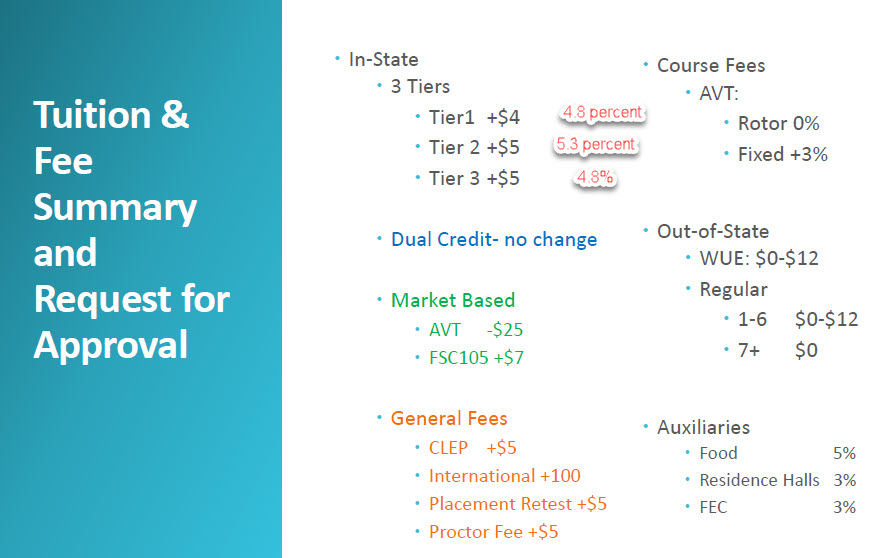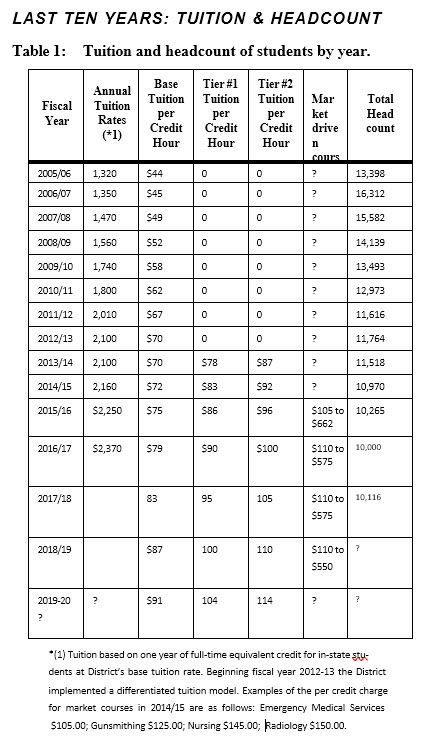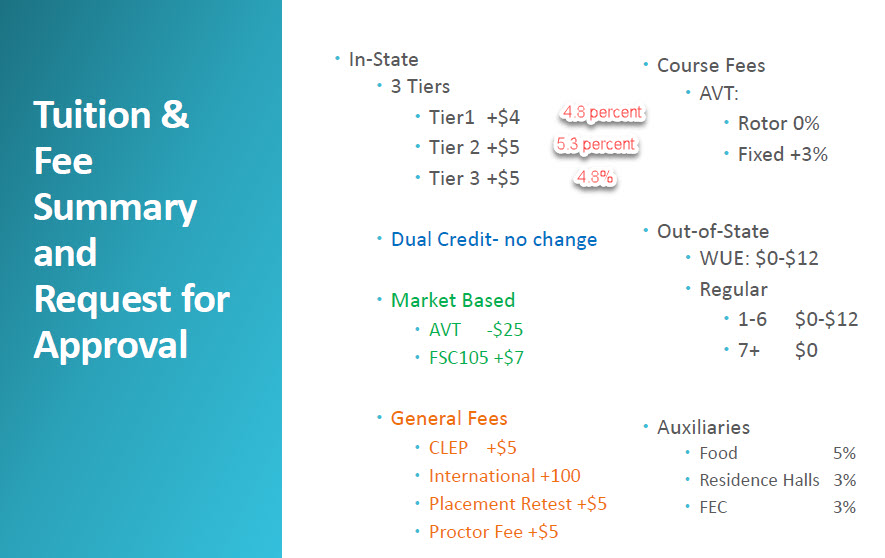Tuition fees may be increased 4% to 5%; continues decade-long annual decision to raise tuition
 The Yavapai Community College Board will seek a tuition increase at the Tuesday, October 8 Governing Board meeting of from four to five percent. The Governing Board has approved a fee increase in some form every year over the past decade.
The Yavapai Community College Board will seek a tuition increase at the Tuesday, October 8 Governing Board meeting of from four to five percent. The Governing Board has approved a fee increase in some form every year over the past decade.
It is anticipated that the Board will approve the increase being asked this year.
 Yavapai College is offering a new 25% discount on credit classes to residents age 65+.
Yavapai College is offering a new 25% discount on credit classes to residents age 65+. Yavapai College is offering a discount of 25% on tuition for seniors 65 years and older who wish to enroll in academic courses at any of its campuses. The discount only applies when registering one week before the start of classes or the week that classes begin.
Yavapai College is offering a discount of 25% on tuition for seniors 65 years and older who wish to enroll in academic courses at any of its campuses. The discount only applies when registering one week before the start of classes or the week that classes begin.
 Anyone familiar with how the College Governing Board has operated in the past can only scratch their head at how it so easily trashed student institutional scholarships in favor of a $103.5 million dollar ten-year plan to essentially rebuild the campus and centers on the west side of the County.
Anyone familiar with how the College Governing Board has operated in the past can only scratch their head at how it so easily trashed student institutional scholarships in favor of a $103.5 million dollar ten-year plan to essentially rebuild the campus and centers on the west side of the County. Yavapai Community College annually places about $800,000 in a fund to support what are described as “institutional scholarships.” However, it appears there is not a fair opportunity for all students to apply and be selected for one of these scholarships.
Yavapai Community College annually places about $800,000 in a fund to support what are described as “institutional scholarships.” However, it appears there is not a fair opportunity for all students to apply and be selected for one of these scholarships. Yavapai Community College has increased its base tuition in each of the last ten years in some form. The tuition increase has been at least twice the annual inflation rate each year.
Yavapai Community College has increased its base tuition in each of the last ten years in some form. The tuition increase has been at least twice the annual inflation rate each year. 
 Senate Bill 1217, sponsored by Cave Creek Republican Senator Heather Carter, would direct Yavapai Community College and other colleges in Arizona to create a new tuition rate for all students who graduate from Arizona high schools.
Senate Bill 1217, sponsored by Cave Creek Republican Senator Heather Carter, would direct Yavapai Community College and other colleges in Arizona to create a new tuition rate for all students who graduate from Arizona high schools.

